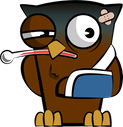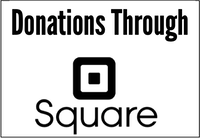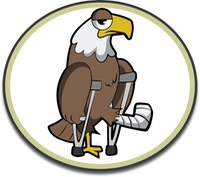What happens when you get called for a rescue?
When we get a call, the first thing we do is decide whether or not the call is for us. If it is for a raptor, that is hawk, eagle, owl, falcon or kite, it is a bird we rehab. If it is a vulture or heron it is one we are also set up to handle then until they are flight cage ready. We try to determine if the bird really needs us next. Many raptors sit on the ground eating for hours if undisturbed. We ask questions to make sure that it has an actual problem. Then we try to get the person to drop a laundry basket over it if possible, or take it to us if it is in that weak a condition. Most of the time we end up haveing them call animal controlto pick it up from where it is. We ask them to take the bird to our favorite vet, and then the vet arranges to get it to our hospital if possible, We care for the bird until it is ready to go back to the wild or is determined as permanently injured. If possible we release it, or re-home it.
How is it you had an eagle?
Our Eagle, Beanca was with us from 1969 to 2014. She was permanently injured and was in our care for 45 years. We had her long before the current wildlife laws were put into effect, making her ‘Grandfathered in.” Beanca was also a Steppe Eagle. That means she was not a US eagle, but a Russian one. Because of her species the laws about her were much different.
Can I touch one of your birds?
Federal law actually prohibits us from letting the audience touch the birds. If we let you touch the bird, we lose our licenses and all the birds have no place to go. so the answer is No.
Can I have a bird as a pet?
No, all wild species are protected under the Migratory Bird Act. (US code 5- CFR 13-23) You cannot possess one without a license.
How do I get a license?
Licenses require a recommendation from 2 currently licensed people, and they require that you study under one of them for minimum 120or more hours within the past year before they recommending you for a license. Licenses are issued by both the state and federal governments, and possessing a bird may require several licenses - one as a rehabber and one for the bird, depending on it's purpose.
Can I volunteer with you?
Yes you can, but you likely will not. We are very strict about animal care, and most people do not like to follow all of our rules. We keep the animals welfare safety and security as our top priority. So you can imagine that it can be hard on volunteers..
Where do you get your birds?
The educational birds we have are mostly birds we rescued but are unable to live in the wild anymore. The ones we keep and do shows with are then vet checked and licensed by the state and federal government for educational shows.
Are you a large refuge?
By comparison to many others we are a small refuge physically and financially, but a large refuge in services. Most small refuges do 20-30 education shows each year. We do between 100 and 200. Most small refuges do less than 100 rescues per year. Our past few years have all exceeded 200 rescues.
Why do I hear all sorts of different stories about local rescuers?
Sadly, rescues are run by people, and people don’t always agree. In this area there are several rehabbers, and all of them think they know the right way to do things, even us. Animal care is something done by people’s passions and emotions, so if there are disagreements, they blow up fast. As a refuge, we are friendly with most rescue centers in NC. There are, however, organizations who take a strong dislike to ways of doing things different from their own. Whatever you hear about us or them, good or bad, are just opinions. We urge all people to get to know whatever rescue they deal with, and not judge them what is said by anyone else.



